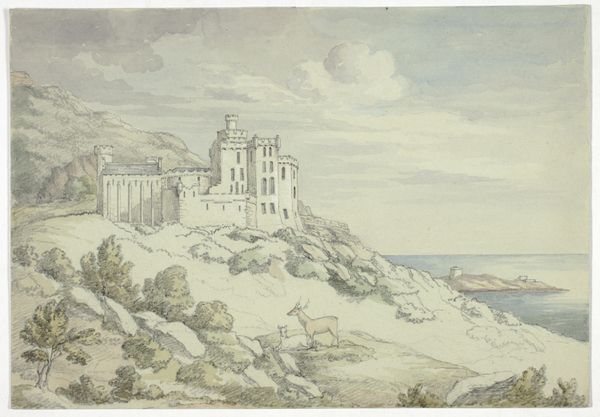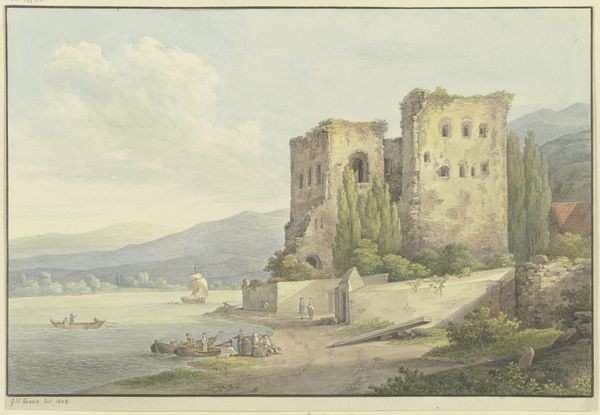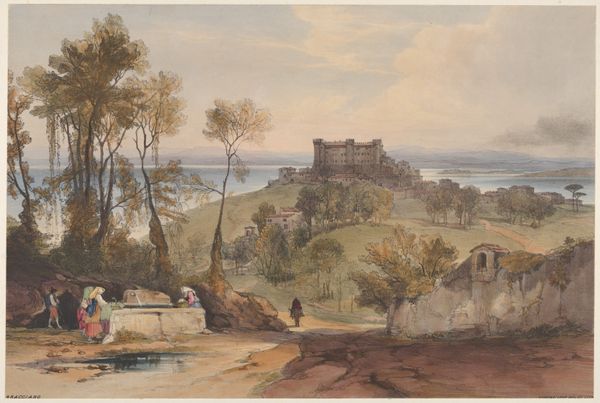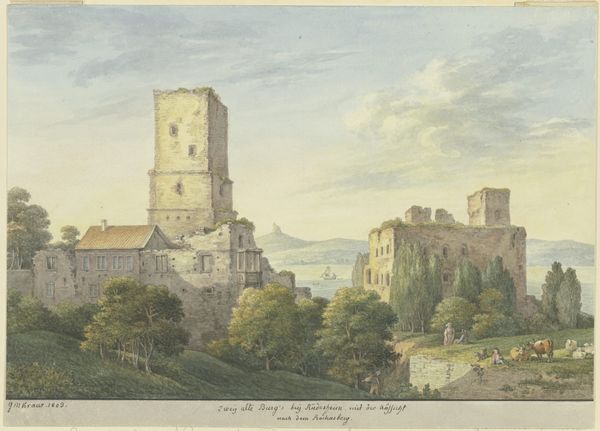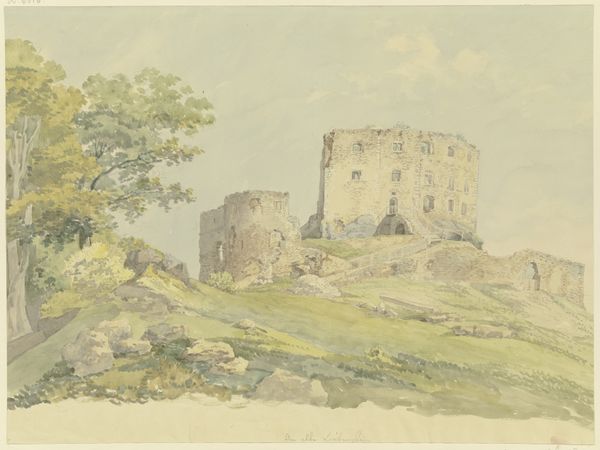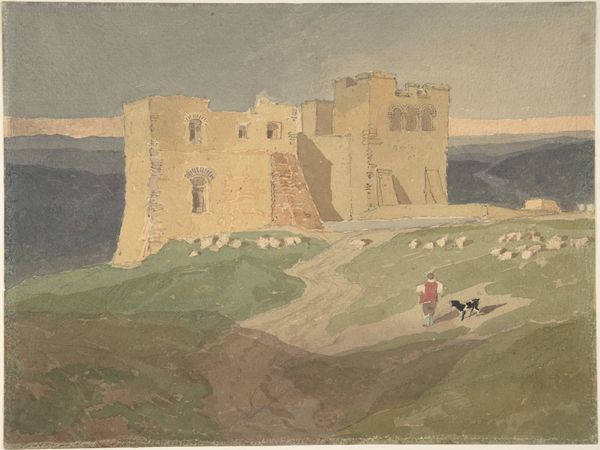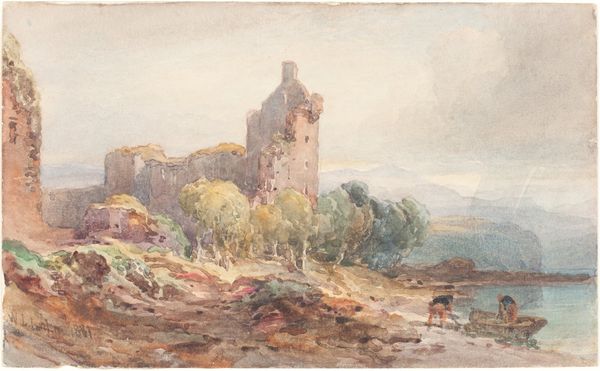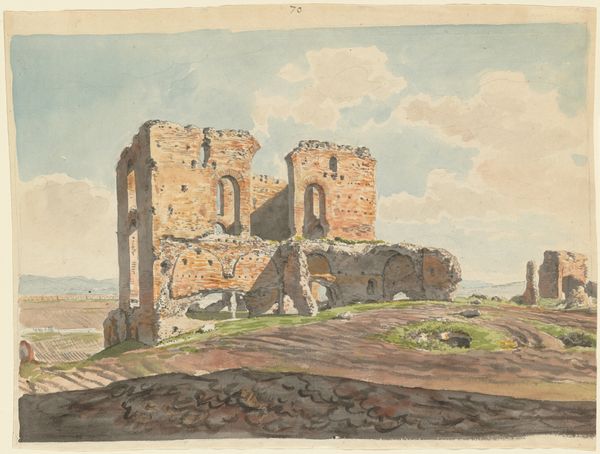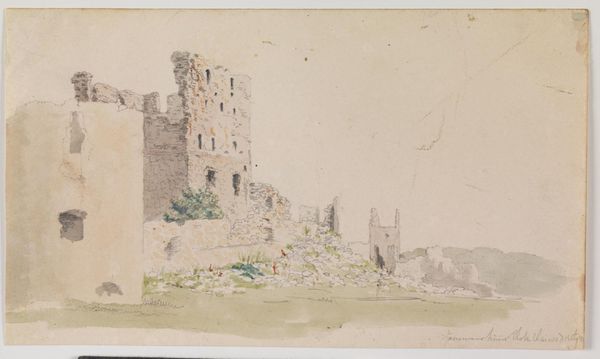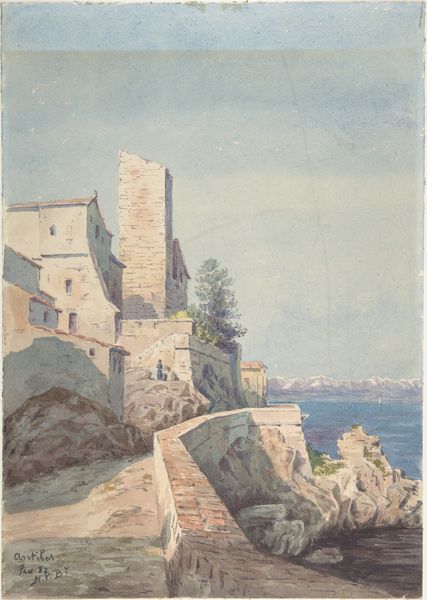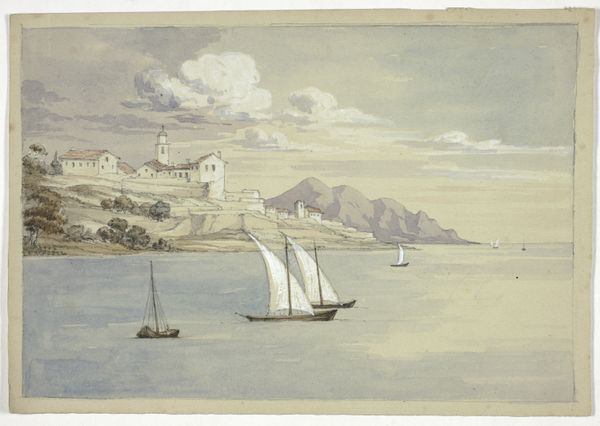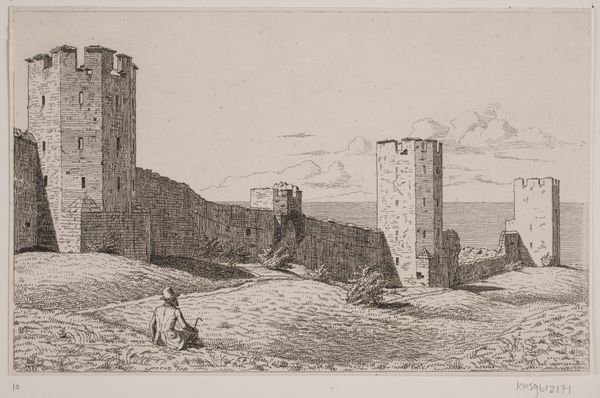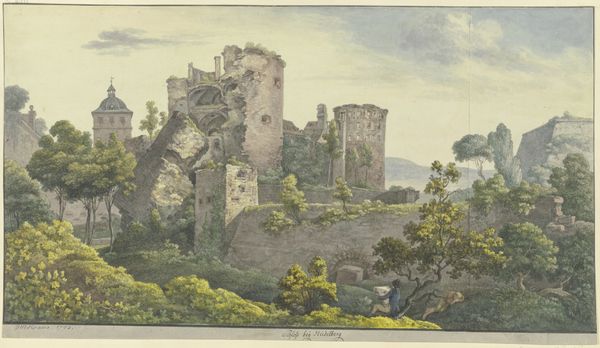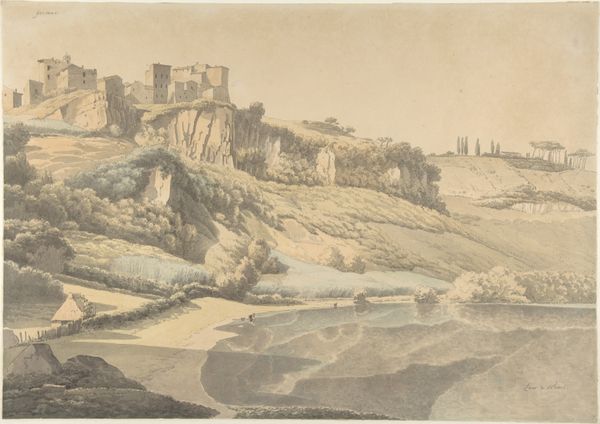
View on Terracina with Mount Circeo (recto); View of the Roman Campagna with an Aquaduct (verso) 1835 - 1894
0:00
0:00
drawing, print
#
drawing
#
water colours
# print
#
landscape
#
possibly oil pastel
#
handmade artwork painting
#
oil painting
#
acrylic on canvas
#
underpainting
#
painting painterly
#
watercolour bleed
#
watercolour illustration
#
watercolor
#
building
Dimensions: Sheet: 8 3/4 × 11 3/8 in. (22.3 × 28.9 cm)
Copyright: Public Domain
Carl von Blaas created this watercolor and graphite painting on paper in the 19th century. The effect of watercolor is so dependent on its flow, its ability to seep into the fibers of the paper and reflect light back to us. You see the whiteness of the paper still shining through, like sun on the Italian landscape. It’s interesting that Blaas chose this medium. Oil painting was considered the more serious pursuit at the time. Watercolor was seen as more of a hobby, something for amateurs and women. But it was also supremely portable. A quick study like this one could be made *en plein air*, allowing Blaas to catch the feeling of the place. Consider, too, that paper was becoming more and more affordable in the 19th century, thanks to industrialization. Blaas would have been part of a new wave of artists taking advantage of these accessible materials, capturing the world as they saw it. This work shows us how even a simple choice of materials places an artist in a particular social and economic context.
Comments
No comments
Be the first to comment and join the conversation on the ultimate creative platform.
